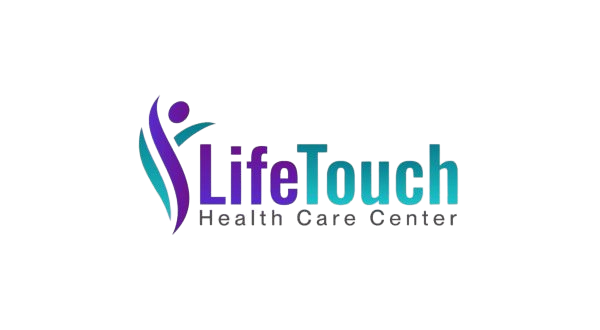OCD
- Home
- OCD
OCD
Obsessive-Compulsive Disorder (OCD) is a mental health condition characterized by persistent, unwanted thoughts (obsessions) and repetitive behaviors or mental rituals (compulsions) performed to alleviate anxiety. These compulsions, such as excessive cleaning, checking, or counting, often interfere with daily life and can cause significant distress. OCD is linked to genetic, neurological, and environmental factors, with imbalances in serotonin playing a key role. Treatment typically includes Cognitive Behavioral Therapy (CBT), particularly Exposure and Response Prevention (ERP), which helps individuals confront fears without engaging in compulsions. Medications like selective serotonin reuptake inhibitors (SSRIs) can also help manage symptoms.
With structured therapy, self-help strategies, and a strong support system, individuals with OCD can significantly improve their quality of life and regain control over their thoughts and behaviors.
Obsessive-Compulsive Disorder (OCD): Understanding & Management
Obsessive-Compulsive Disorder (OCD) is a chronic mental health condition characterized by persistent, intrusive thoughts (obsessions) and repetitive behaviors or mental rituals (compulsions) performed to reduce anxiety. Common obsessions include fears of contamination, harm, or intrusive thoughts, while compulsions may involve excessive cleaning, checking, counting, or arranging items in a specific order. OCD can interfere with daily life, relationships, and work productivity. The exact cause is unknown, but it is linked to genetic, neurological, and environmental factors. Treatment includes Cognitive Behavioral Therapy (CBT), particularly Exposure and Response Prevention (ERP), which helps individuals face their fears without performing compulsions. Medications such as selective serotonin reuptake inhibitors (SSRIs) are also commonly prescribed. With proper therapy, medication, and coping strategies, individuals with OCD can manage their symptoms and improve their quality of life.
Key Aspects of OCD
🔹 Common Causes & Risk Factors
- Genetic & Biological Factors – A family history of OCD or differences in brain structure and function.
- Neurochemical Imbalances – Dysregulation of serotonin, a key neurotransmitter in mood and behavior.
- Stress & Trauma – Major life events, chronic stress, or childhood trauma can trigger or worsen OCD symptoms.
- Personality Traits – Perfectionism, high anxiety levels, or excessive worry can contribute to OCD tendencies.
🔹 Symptoms of OCD
Obsessions (Intrusive Thoughts)
- Fear of germs, dirt, or contamination.
- Unwanted aggressive, sexual, or taboo thoughts.
- Excessive doubt, need for reassurance, or fear of making mistakes.
- Disturbing religious or moral concerns (scrupulosity).
Compulsions (Repetitive Behaviors)
- Excessive washing, cleaning, or sanitizing.
- Repetitive checking (e.g., locking doors, turning off appliances).
- Counting, repeating words, or arranging objects in a specific way.
- Avoidance of triggers that provoke obsessive thoughts.
🔹 Effects of OCD
- Impaired Daily Functioning – Time-consuming rituals interfere with work, school, and relationships.
- Emotional Distress – Persistent anxiety, frustration, and feelings of shame or guilt.
- Social Withdrawal – Avoidance of situations that trigger obsessions, leading to isolation.
- Coexisting Disorders – OCD often occurs alongside anxiety disorders, depression, or eating disorders.
🔹 Treatment & Management
✅ Cognitive Behavioral Therapy (CBT)
- Exposure and Response Prevention (ERP) – Gradual exposure to fears without performing compulsions, helping to reduce anxiety over time.
- Cognitive Restructuring – Challenging irrational thoughts and developing healthier thought patterns.
✅ Medications
- Selective Serotonin Reuptake Inhibitors (SSRIs) – Commonly prescribed antidepressants (e.g., fluoxetine, sertraline) that help manage symptoms.
- Other Medications – In severe cases, additional medications like antipsychotics may be considered.
✅ Self-Help & Coping Strategies
- Mindfulness & Relaxation Techniques – Deep breathing, meditation, and stress reduction exercises.
- Building a Routine – Structured daily activities to reduce the time spent on compulsions.
- Journaling & Thought Tracking – Identifying patterns and triggers to develop better coping mechanisms.
- Seeking Support – Therapy, support groups, and talking to loved ones for encouragement.
✅ Severe Cases & Alternative Treatments
- Intensive Therapy Programs – Residential or intensive outpatient programs for individuals with severe OCD.
- Deep Brain Stimulation (DBS) or Transcranial Magnetic Stimulation (TMS) – Used in treatment-resistant OCD cases.
With the right treatment, individuals with OCD can learn to manage their symptoms effectively, reduce anxiety, and regain control over their lives.
Why Choose Us
Choose LifeTouch Healthcare for a personalized, practical approach to mental health, where we provide actionable solutions to help you thrive. Our compassionate team is dedicated to supporting your journey toward lasting well-being.
Trained Psychiatry
Highest Quality Service
Contact Us In Any Way

